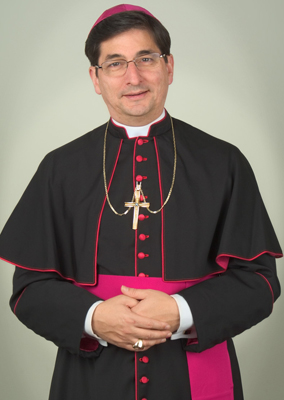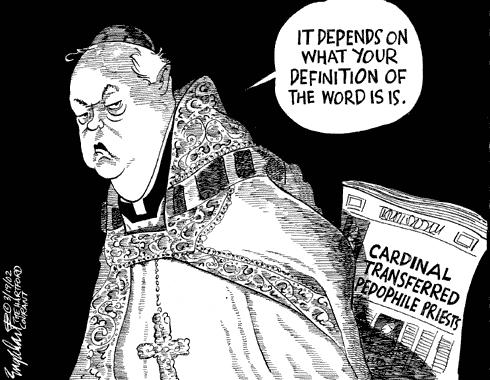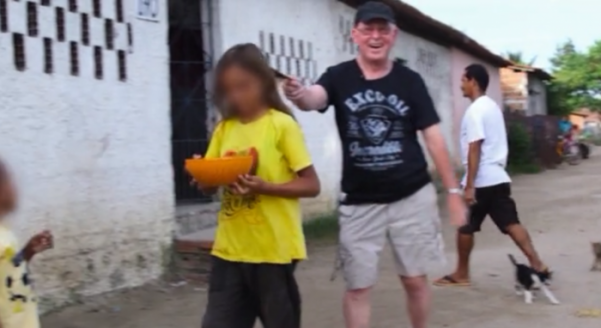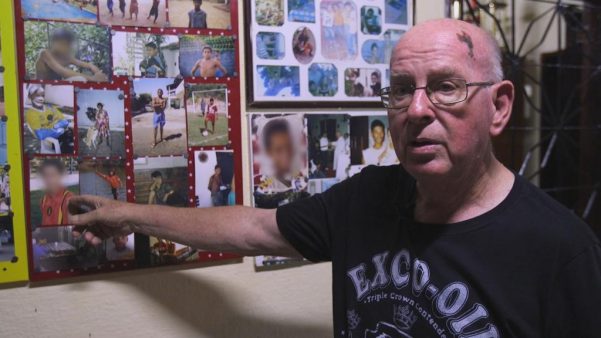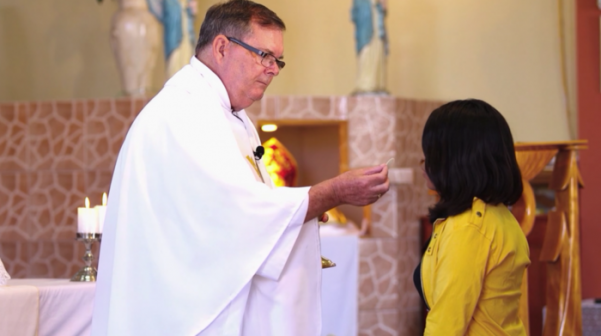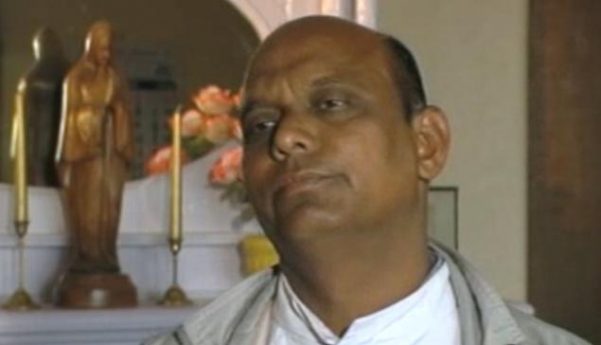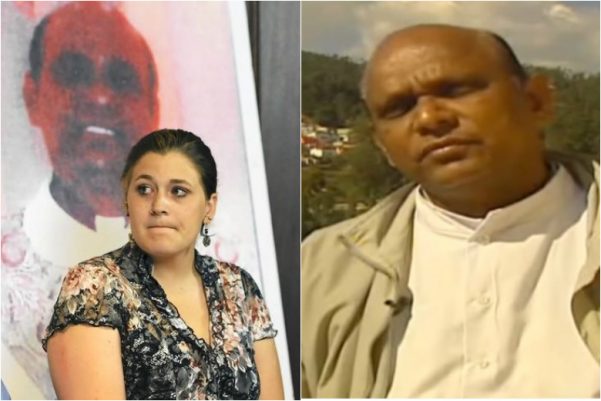by Carla Hinton
A Roman Catholic leader said Monday he is “assessing the situation” regarding a Lawton priest who pleaded guilty to a misdemeanor involving a young woman.
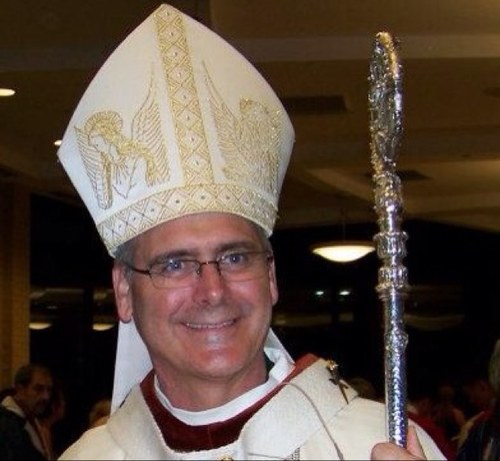
The Most Rev. Paul S. Coakley, archbishop of the Archdiocese of Oklahoma City, issued the second of two prepared statements about the Rev. Jose Alexis Davila on Monday evening.
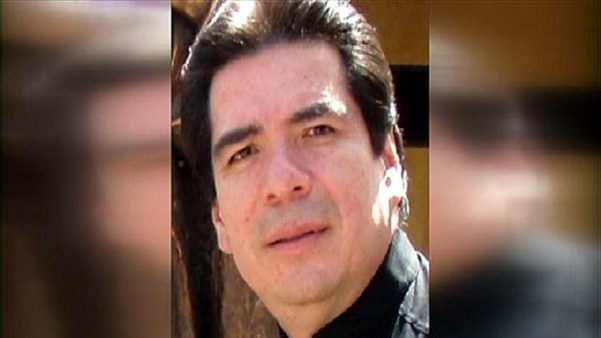
The archbishop’s remarks came as some parishioners of Lawton’s Blessed Sacrament Catholic Church began voicing their concerns about Davila after news of his misdemeanor surfaced recently.
Diane Clay, archdiocesan spokeswoman, said Coakley had received emails and telephone calls from some parishioners of Blessed Sacrament Catholic Church about Davila after recent media reports that Davila pleaded guilty to a misdemeanor charge in 2012 in San Diego.
Clay said most of the parishioners voicing their uneasiness were those whose children attend St. Mary’s Catholic School in Lawton. Clay said as pastor or parish priest of a church tied to a school, the priest is part of the school environment.
In his prepared statement released Monday evening, Coakley said he wanted to ensure that people felt safe.
“It is important that we operate in an open environment where people in our parishes and institutions feel safe and welcome to practice their faith. In regard to Father Davila, we are assessing the situation,” Coakley said. “Those who work in the Archdiocese of Oklahoma City — priests, staff, teachers, employees and volunteers — understand they are required to follow the strict policies and procedures in place to create and maintain a safe environment — no exceptions.”
He said his staff conducted a full investigation of Davila before the priest was appointed to serve as an associate pastor of Blessed Sacrament in December 2015.
Clay said in March, Davila was moved from the Lawton parish to Elgin as administrator when one of the archdiocese’s international priests returned home. She said he continued helping at Lawton’s Blessed Sacrament, however, and Coakley recently appointed him to serve as the church’s pastor, effective in June.
Clay said before coming to Oklahoma, Davila pleaded guilty to a misdemeanor charge in 2012 in San Diego and was sentenced to probation for three years and community service, which he completed. In 2015, San Diego Superior Court granted Davila a petition for relief, which officially withdrew his plea of guilty and dismissed the accusation against him.
Meanwhile, a victims’ group is dissatisfied with Coakley’s rationale for employing Davila.
Coakley said his staff’s investigation of Davila included a background check and lengthy interviews of leaders from Davila’s former employers in the dioceses where he served.
“While Father Davila’s actions with an adult parishioner five years ago occurred in the presence of others at his office in California, he understands that those actions were perceived as inappropriate. He accepted the consequences of his lapse in judgment,” Coakley said in his initial prepared statement released Saturday.
However, the Survivors Network of those Abused by Priests (SNAP), a support group for clergy abuse victims, said Coakley’s remarks about Davila are “misleading.”
David Clohessy, St. Louis director of SNAP, said Monday that he believed Coakley’s statement included several “deceptive” points. Clohessy said his group takes exception to Coakley describing the San Diego incident regarding Davila and a 19-year-old female parishioner as a “lapse in judgment” and “perceived as inappropriate.” The group claims the incident was “criminal and hurtful.”
The archbishop’s statement released Saturday reads as follows:
“It is important that we operate in an open environment where people in our parishes and institutions feel safe and welcome to practice their faith. While Father Davila’s actions with an adult parishioner five years ago occurred in the presence of others at his office in California, he understands that those actions were perceived as inappropriate. He accepted the consequences of his lapse in judgment.
“Without excusing or justifying his behavior, I think he can now safely and appropriately return to ministry. Some actions such as the sexual abuse of a child are so grievous that the perpetrator must be permanently removed from ministry. This was not one of those actions.
“Before allowing him to serve in the Archdiocese of Oklahoma City, my staff conducted a full investigation, including a criminal-background check, probationary period and lengthy interviews with leaders from dioceses in which Father Davila has served. Father Davila has been open and forthcoming about his experience. He is committed to the strict code of ethical conduct expected in the Archdiocese of Oklahoma City, and he understands — as do all of our priests, staff, teachers, employees and volunteers — that they are required to follow the policies and procedures in place to create a safe environment — no exceptions.”
The San Diego Union Tribune reported in January 2012 that Davila initially pleaded not guilty to three counts of misdemeanor sexual battery stemming from accusations that he inappropriately touched a young woman at his San Diego home.
The news outlet said the priest was serving at St. Jude’s Shrine of the West when the accusations were made. The Union Tribune reported that 50 supporters showed up in San Diego Superior Court to support Davila at his arraignment.
The newspaper reported that the case was referred to the district attorney’s office for review, but the office rejected it and the matter was forwarded to the city attorney’s office, which handles misdemeanor prosecutions in San Diego.
Complete Article HERE!

